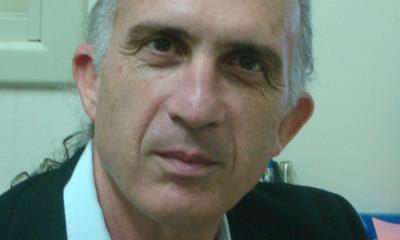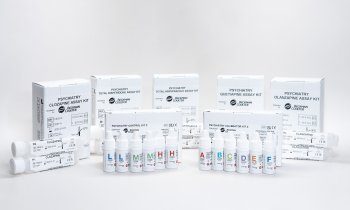A new tool for biochemical analyses
Although telemedicine could improve the quality of life of patients with chronic liver diseases, viable home care systems are still lacking. However, within the EU-project ‘d-LIVER’ (www.d-liver.eu) scientists at the Fraunhofer Institute for Biomedical Engineering IBMT, in St. Ingbert, Germany, are working with European partners to develop an IT- and cell-based system that will help chronic liver failure patients to receive medical support at home.

The project engineers are programming the IT platform and developing sensor technology to measure the condition of the liver cells in the cell-based system. As IBMT computer scientist Stephan Kiefer points out: ‘Telemedicine is something that would greatly improve the quality of medical care and patients’ quality of life.’
With the research team’s work progressing, currently their patient management system is at the most advanced stage. For the first time, the scientists are combining classic components of telemedicine – such as remote monitoring for doctors – within a system that assists decision-making. Called the Care Flow Engine, Kiefer explains what lies within it. ‘We’ve created IT systems that can take treatment plans drawn up by doctors and turn them into such user-friendly automated processes that chronic liver disease patients can receive quality long-term treatment at home.’
To this end, the scientists have developed an IT application called Personal Health Manager, which patients can access conveniently on tablet computers in the form of an app. It amalgamates all the data from devices that measure blood pressure, heart rate, weight, temperature and liver values along with the treatment plans from the Care Flow Engine. ‘Its main purpose is to ensure optimum treatment for the typical complications that tend to accompany liver diseases,’ says Kiefer.
This can be achieved by means of tests, questioning, exercises, or instructions. For example, patients are regularly asked to weigh themselves, measure their liver values and accomplish a cognitive test. This provides indications as to how much patients are suffering from conditions such as encephalopathy and ascites.
The system automatically evaluates the results, suggests adjustments to medication doses, and recommends courses of action that are then discussed between the doctor and patient.
‘Although the technology is currently set up for liver diseases, it’s suitable, in principle, for the telemedical treatment of any chronic illness,’ Kiefer points out. ‘Adapting the existing system to make this a reality is our medium-term goal.’
Sensors measure cell vitality
The sensor technology for monitoring liver cells was developed by physicist Dr Thomas Velten. ‘Our sensors continuously measure the vitality of the cells in a bioreactor – and they do so by analysing the cells directly. This is an important new tool to complement conventional biochemical analyses.’
Thanks to built-in sensors, operators do not have to open the bioreactor for every measurement, thus eliminating the danger of the cells becoming contaminated.
Impedance (the technical term for resistance to alternating electric current) spectroscopy plays an important role in the procedure. When cells deteriorate, their impedance spectrum changes.
So far, scientists have been able to prove this effect in smaller laboratory reactors. At the end of this year, the researchers want to confirm those results using bigger bioreactors that are equivalent to a human liver in terms of volume. Finally, Velten adds: ‘The online measurement of cell vitality is an important part of our IT-based system to support liver treatment.’
10.11.2014











